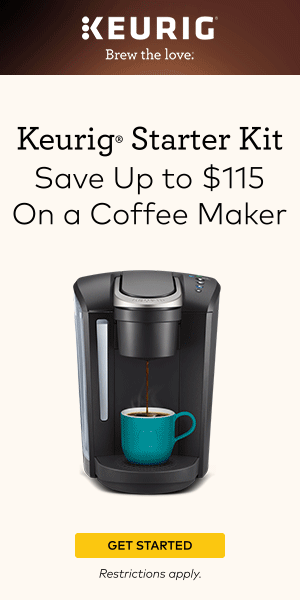Is Starbucks Passion Tea Sugar Free?
Starbucks Passion Tea has gained immense popularity among tea enthusiasts for its vibrant color, refreshing taste, and potential health benefits. In recent years, there has been a growing interest in sugar-free and low-sugar options, prompting Starbucks to expand its menu to cater to this demand. This article delves into the sugar content of Starbucks Passion Tea, explores sugar-free alternatives, and provides nutritional information to help individuals make informed choices.
Overview of Starbucks Passion Tea
Starbucks Passion Tea is a caffeine-free herbal tea blend crafted with hibiscus, lemongrass, and apple. The combination of these ingredients results in a vibrant pink-red color and a tart, fruity flavor with a hint of sweetness. It is available in various forms, including hot, iced, and concentrated versions, allowing customers to enjoy it according to their preferences.
Sugar-Free Options at Starbucks
Starbucks recognizes the importance of providing sugar-free and low-sugar options to cater to customers with dietary restrictions, health concerns, or personal preferences. The company offers a range of sugar-free beverages, including black coffee, unsweetened iced tea, and various sugar-free syrups and flavorings. These options enable customers to customize their drinks and enjoy their favorite beverages without compromising their sugar intake.
Analyzing the Sugar Content of Starbucks Passion Tea
Starbucks Passion Tea, in its original form, contains added sugar. The amount of sugar varies depending on the size and version of the beverage. A Grande (16-ounce) serving of hot Starbucks Passion Tea contains 29 grams of sugar, while the same size of iced Passion Tea contains 31 grams of sugar. The concentrated version of Passion Tea, which is often used to make iced tea or other mixed beverages, contains 19 grams of sugar per 8-ounce serving.
Introducing the Passion Tango Herbal Tea
For individuals seeking a sugar-free alternative to Starbucks Passion Tea, the Passion Tango Herbal Tea is an excellent choice. This caffeine-free tea blend combines hibiscus, lemongrass, and apple, offering a similar flavor profile to the original Passion Tea. However, unlike its sugary counterpart, the Passion Tango Herbal Tea is naturally sugar-free, making it an ideal option for those looking to reduce their sugar consumption.
Sweeteners Used in Sugar-Free Passion Tea
Starbucks uses artificial sweeteners to provide a sweet taste to its sugar-free Passion Tango Herbal Tea. These sweeteners, such as sucralose and stevia, are non-caloric and do not contribute to the sugar content of the beverage. They are generally considered safe for consumption, but some individuals may experience sensitivity or adverse reactions to certain sweeteners.
Nutritional Information
A Grande (16-ounce) serving of Starbucks Passion Tango Herbal Tea contains 0 calories, 0 grams of fat, 0 grams of carbohydrates, and 0 grams of sugar. This makes it an excellent choice for individuals following a low-calorie or sugar-restricted diet.
Other Sugar-Free Tea Options
In addition to the Passion Tango Herbal Tea, Starbucks offers a variety of other sugar-free tea options. These include black tea, green tea, herbal tea blends, and iced teas sweetened with artificial sweeteners. Customers can explore the menu and select the tea that best suits their taste preferences and dietary needs.
Conclusion
Starbucks Passion Tea, in its original form, contains added sugar, making it unsuitable for individuals seeking sugar-free beverages. However, Starbucks offers a sugar-free alternative, the Passion Tango Herbal Tea, which provides a similar flavor profile without the added sugar. This tea is sweetened with artificial sweeteners, which are generally considered safe for consumption. With 0 calories, 0 grams of fat, and 0 grams of sugar, the Passion Tango Herbal Tea is an excellent choice for those following a low-calorie or sugar-restricted diet. Starbucks also offers a range of other sugar-free tea options to cater to diverse tastes and preferences. By making informed choices and exploring the sugar-free alternatives available, individuals can enjoy their favorite Starbucks beverages without compromising their health goals or personal preferences.
FAQs
Is Starbucks Passion Tea sugar-free?
No, Starbucks Passion Tea, in its original form, contains added sugar. A Grande (16-ounce) serving of hot Starbucks Passion Tea contains 29 grams of sugar, while the same size of iced Passion Tea contains 31 grams of sugar.
Does Starbucks offer a sugar-free alternative to Passion Tea?
Yes, Starbucks offers the Passion Tango Herbal Tea as a sugar-free alternative to Passion Tea. This caffeine-free tea blend combines hibiscus, lemongrass, and apple, offering a similar flavor profile to the original Passion Tea, but without the added sugar.
What sweeteners are used in Starbucks Passion Tango Herbal Tea?
Starbucks uses artificial sweeteners, such as sucralose and stevia, to provide a sweet taste to its sugar-free Passion Tango Herbal Tea. These sweeteners are non-caloric and do not contribute to the sugar content of the beverage.
Is Starbucks Passion Tango Herbal Tea safe for consumption?
Yes, Starbucks Passion Tango Herbal Tea is generally considered safe for consumption. Artificial sweeteners used in the tea are approved by regulatory agencies and deemed safe for human consumption. However, some individuals may experience sensitivity or adverse reactions to certain sweeteners.
What are the nutritional benefits of Starbucks Passion Tango Herbal Tea?
Starbucks Passion Tango Herbal Tea is a low-calorie and sugar-free beverage. A Grande (16-ounce) serving contains 0 calories, 0 grams of fat, 0 grams of carbohydrates, and 0 grams of sugar. It can be a refreshing and hydrating option for individuals following a low-calorie or sugar-restricted diet.
Are there other sugar-free tea options available at Starbucks?
Yes, Starbucks offers a variety of other sugar-free tea options, including black tea, green tea, herbal tea blends, and iced teas sweetened with artificial sweeteners. Customers can explore the menu and select the tea that best suits their taste preferences and dietary needs.


